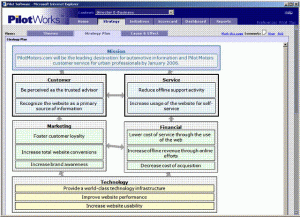Even though I’ve spent a lot of time over the last year talking to clients about risk management, I haven’t covered the topic in this blog other than my post on Risk Friends and Key Risk Indicators. This is especially odd as I’ve come to believe strategy management and risk management are inextricably linked. I’ll expound…




